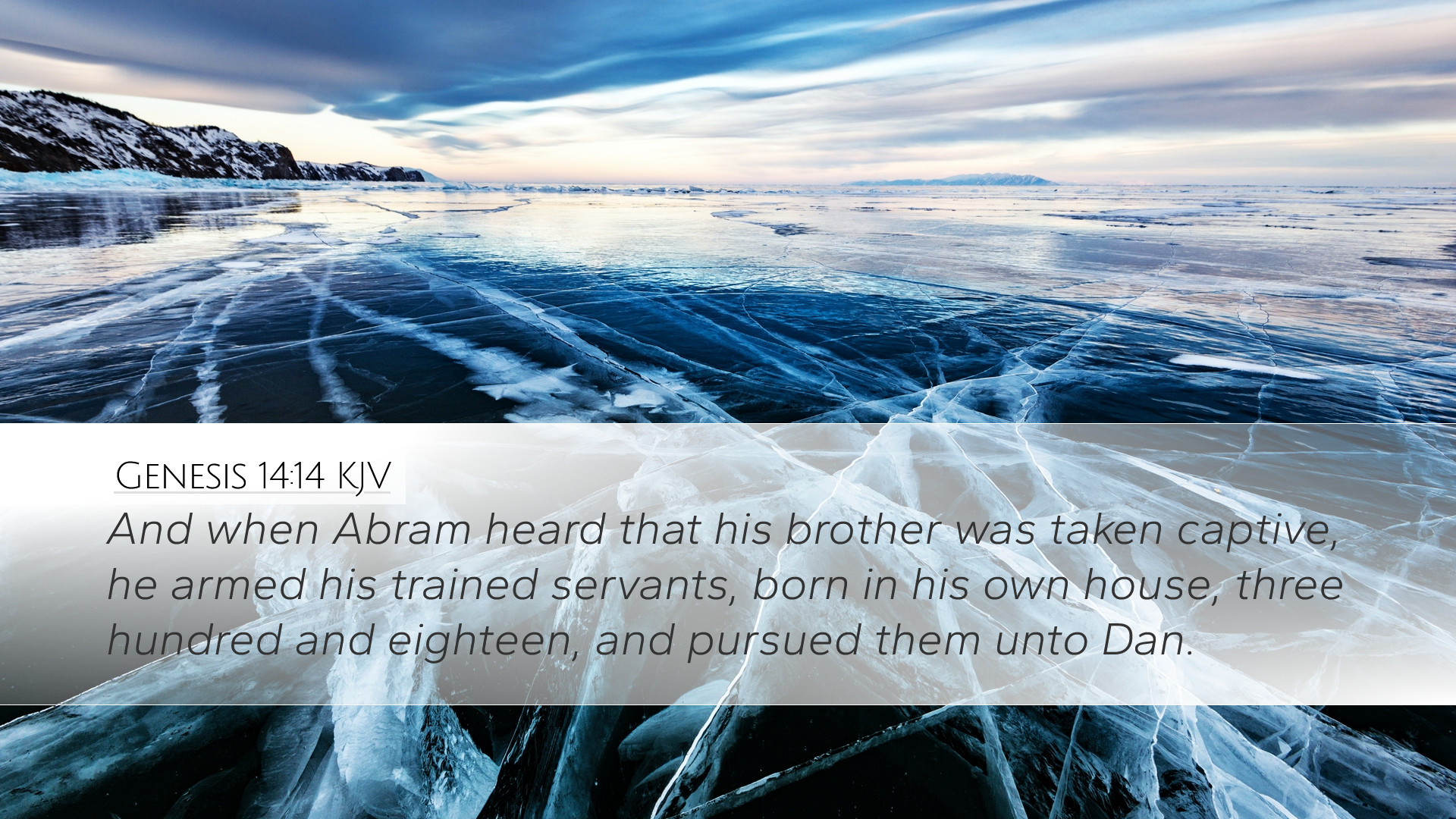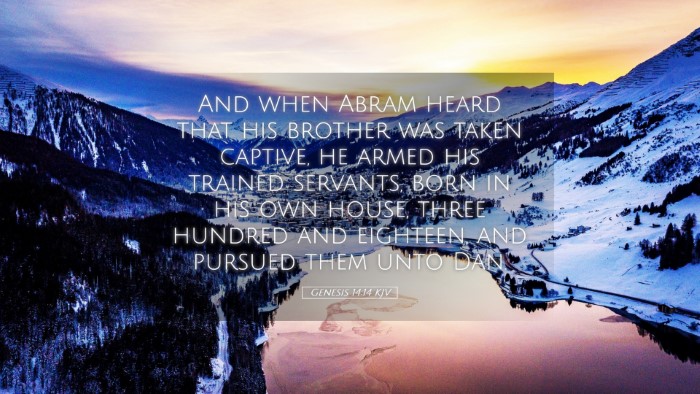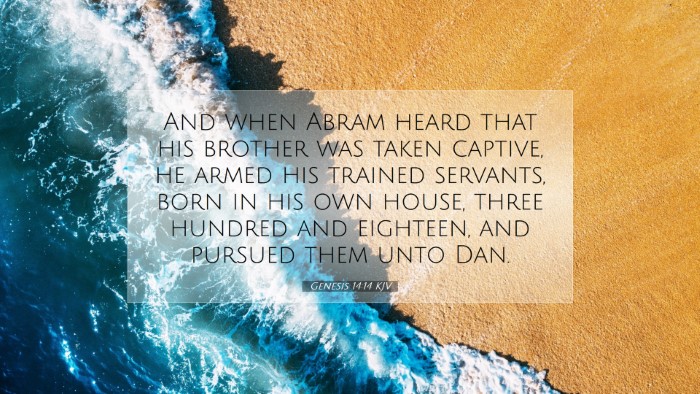Commentary on Genesis 14:14
Verse: "When Abram heard that his relative had been taken captive, he called out the 318 trained men born in his household and went in pursuit as far as Dan."
Contextual Overview
This verse occurs within the narrative of Abram (later Abraham), detailing a significant episode involving his nephew Lot. The backdrop of the passage is a conflict involving several kings and their cities, culminating in Lot's capture. The dramatic tension prompts Abram to respond decisively, showcasing his leadership and faith.
Insights from Commentaries
Matthew Henry's Commentary
Henry emphasizes Abram's immediate reaction upon hearing of Lot's captivity. He notes Abram's readiness to act, highlighting his quality as a protector and leader. Henry points out that God's covenant favor was evident, as Abram—not a military leader by trade—was quick to muster men for battle.
Key Insights:
- Abram’s decisive action illustrates the faith he had in God’s protection and guidance.
- The 318 men signify Abram's wealth and his capacity to lead his household in battle, which speaks to the broader provisions God provides for His people.
- Henry draws attention to the moral imperative of rescuing one's kin, reflecting a profound loyalty characteristic of the ancient Near Eastern familial structures.
Albert Barnes' Notes
Barnes focuses on the practical implications of Abram's choice to engage in battle. He highlights the training and preparedness of Abram's men, pointing out their readiness for conflict as a testament to Abram’s leadership.
Noteworthy Observations:
- Abram's call to arms reflects his righteous indignation and immediate response to injustice.
- The act of pursuing Lot is indicative of the community ethos that permeated the patriarchal society and underscores the determination to protect family and kin.
- Barnes compares this incident to other biblical contexts of call to arms, illustrating the common theme of divine intervention in moments of crisis.
Adam Clarke's Commentary
Clarke provides a densely packed exposition of the numbers involved, particularly the 318 men. He notes the significance of the specific number, suggesting that it may imply a well-organized and trained force, equipped for battle, which would have likely been a surprise to the enemies.
Critical Reflections:
- Clarke posits that the successful pursuit was not merely a product of military might but also of divine favor upon Abram, illuminating the interplay between human agency and divine providence.
- The mention of Dan is notable, marking the geography of the conflict and the extent to which Abram was willing to go for his nephew.
- Clarke discusses the concept of brotherly love and the obligations it entails, reflecting a deep theological understanding of kinship as a central theme in the biblical narrative.
Theological Implications
The verse presents profound theological themes relevant for pastors and theologians today. Abram's actions reflect a model of faithful leadership, demonstrating active faith that propels individuals toward righteous action. This scenario invites reflection on the nature of community, responsibility, and the communal aspect of faith. The implications of Abram's choices reveal a God who works through individuals to effect justice and redemption.
Leadership and Responsibility
Critical Concepts:
- The importance of stepping into the fray in defense of the oppressed and vulnerable is a lesson for contemporary spiritual leaders.
- Abram’s leadership is characterized by personal investment; he does not merely delegate responsibility but engages directly in the rescue mission.
Faith in Action
This verse posits a challenge to believers to embody faith through action, showcasing that genuine faith involves risk and sacrifice. Abram acts out of a belief that God would support his endeavor, thus serving as a paradigm of faith's operational nature.
Conclusion
In summary, Genesis 14:14 encapsulates a vital moment in biblical history where faith translates into action. The insights drawn from the esteemed commentaries by Matthew Henry, Albert Barnes, and Adam Clarke converge to illuminate the multifaceted dimensions of this narrative. For pastors, students, and theologians, this verse serves as a profound reminder of the call to protect others, the importance of community, and the divine underpinnings of leadership. A reflection on Abram's faith and actions encourages believers to engage their faith actively and responsibly in the context of their communities.


